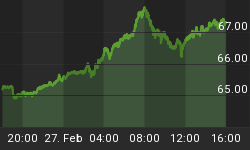Turkey was granted a waiver for Iran sanctions on Monday, and a day later, Turkish President Tayyip Erdogan says the country won’t be complying in a scheme that will result in “unbalancing the world”—an issue he plans to address at a summit this weekend in Paris.
“We will absolutely not abide by such sanctions. We buy 10 billion cubic meters of natural gas. We cannot freeze our people in the cold,” Erdogan said.
The important thing to understand is that this is a negotiation—still. The waiver is temporary, and over the next six months we will see how Washington uses the temporary nature of the waiver for leverage in a possible extension.
It’s a bargaining chip particularly for what happens next in Syria.
Erdogan’s Tuesday statement is meant to send a clear message that he’s getting out in front of this and that Washington’s negotiating position isn’t as strong as Trump thinks it is.
If Turkey plays ball with Washington over Syria—or more precisely, refrains from invading northeast Syria—it may get an extension on that waiver, and it may get more: Washington’s blind eye to Turkey’s continued dealings with Iran, unofficially. In the meantime, Erdogan will maintain the pressure on a number of fronts, from Saudi Arabia and the Khashoggi murder to Syria, and the trial in the U.S. of sanctions-busting Turkish state bank, Halkbank.
All told, the U.S. has given a temporary waiver to eight countries to allow them to continue importing Iranian oil and gas, including China, India, South Korea, Japan, Italy, Greece, Taiwan and Turkey.
In the meantime, Europe is still talking about a way around sanctions, but those efforts have been complicated by a (poorly or conveniently, depending who you are) timed assassination attempt on an Arab separatist in Denmark, allegedly perpetrated by the Iranian government. That has driven a wedge in the EU’s unity on the Iran sanctions issue, at the 11th hour. Related: What’s Behind Buffett’s Billion Dollar Berkshire Buyback?
And Washington has seen an early victory in getting Belgian-based Swift—the service that connects thousands of global financial institutions for transferring money—to bow to U.S. sanctions on Monday.
That move followed a statement on Friday by Treasury Secretary Steven Mnuchin, calling on Swift to cut off all Iranian banks on its list.
Swift is a major part of the sanctions puzzle because it has the potential to deal a crippling financial blow when money transfer information cannot be forwarded to banks that are blacklisted. In other words, that makes it impossible to pay for imports and receive payments for exports—at least for banks that are exposed internationally, and connected to Swift.
Europe has been working on a payment system workaround, even if it’s slow at best.
But India, for instance, has a workaround by paying for Iranian oil imports in Indian rupees through UCO bank in India, which is not internationally exposed and not connected to Swift.
Russia is also working on a way to bypass Swift with its own alternative payments system, which also challenges the petro-dollar in general.
Related: Analysts See Upside In Energy Stocks
By forcing countries to come up with an alternative to Swift, Washington is, over the longer term, speeding up efforts to end the dominance of the dollar.
“It will undermine America’s influence over the international financial architecture and diminish its power over allies and adversaries alike,” Henry J. Farrell of George Washington University and Abraham L. Newman of Georgetown University wrote in an NYT opinion piece.
From Turkey, to China, to Swift, to the rest of the world, Iran sanctions are indeed a ‘Game of Thrones’, that will be used to wrestle the remaining concessions on Washington’s bucket list. But the price of those concessions may be higher than national interest can afford.
By Charles Benavidez for Safehaven.com
More Top Reads From Safehaven.com:
















